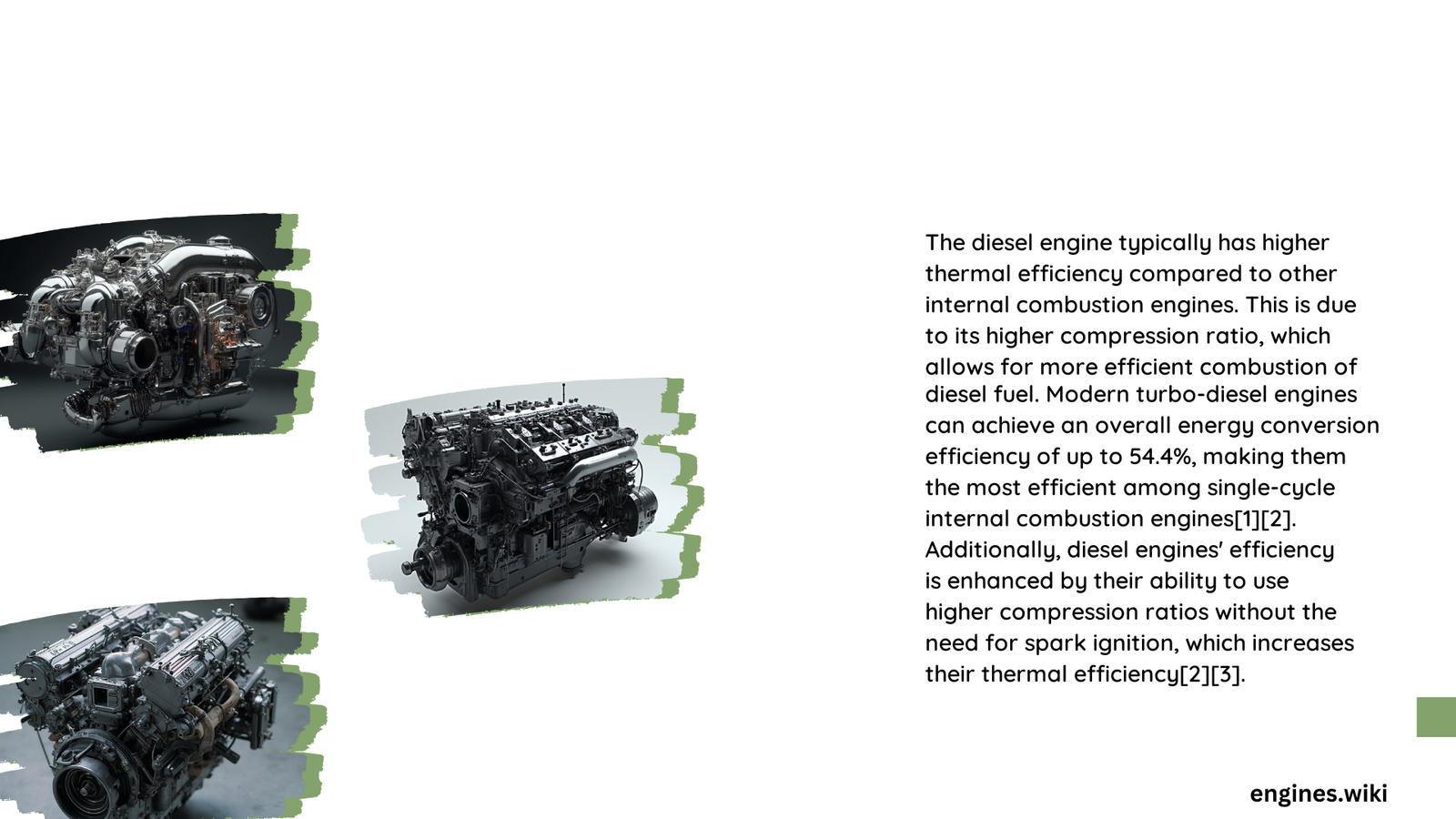Modern automotive engineering reveals a complex landscape of thermal efficiency, where diesel engines consistently outperform gasoline counterparts. Through advanced combustion technologies and superior compression ratios, diesel engines achieve remarkable energy conversion rates, typically ranging between 40-45% thermal efficiency compared to gasoline engines’ 20-40% performance spectrum.
What Makes Thermal Efficiency Different Across Engine Types?
How Do Diesel Engines Achieve Superior Thermal Performance?
Diesel engines demonstrate remarkable thermal efficiency through several critical mechanisms:
- Higher Compression Ratios: Typically 14:1 to 25:1, enabling more efficient energy conversion
- Direct Fuel Injection: Precise fuel delivery minimizes energy wastage
- No Throttling Losses: Unrestricted air intake reduces energy consumption
What Technical Factors Influence Engine Efficiency?
| Engine Type | Thermal Efficiency | Compression Ratio | Fuel Consumption |
|---|---|---|---|
| Diesel | 40-45% | 14:1 – 25:1 | 5-7 L/100km |
| Gasoline | 20-40% | 8:1 – 12:1 | 8-12 L/100km |
| Hybrid | 35-45% | Varies | 4-6 L/100km |
Why Do Diesel Engines Perform Better?
The diesel cycle’s fundamental design provides inherent advantages:
- Compression Ignition: Eliminates spark plug energy losses
- Higher Energy Density: Diesel fuel contains more potential energy
- Reduced Pumping Losses: More efficient air management
Can Advanced Technologies Improve Gasoline Engine Efficiency?
Modern gasoline engines are catching up through innovative approaches:
- Turbocharging: Increases power density
- Variable Valve Timing: Optimizes combustion efficiency
- Hybrid Integration: Supplements mechanical energy with electrical power
What Challenges Limit Thermal Efficiency?
Critical limitations include:
- Heat Dissipation: Significant energy loss through cooling systems
- Mechanical Friction: Reduces overall power transmission
- Combustion Imperfections: Incomplete fuel oxidation
How Do Hybrid Engines Compete?
Hybrid powertrains offer unique efficiency advantages:
- Energy Recuperation: Converts kinetic energy during braking
- Intelligent Power Management: Switches between electric and combustion modes
- Reduced Mechanical Stress: Lower wear on traditional engine components
Conclusion: Definitive Thermal Efficiency Champion

Diesel engines emerge as the clear thermal efficiency leaders, consistently delivering 40-45% energy conversion rates. While gasoline and hybrid technologies continue advancing, diesel’s fundamental design provides a significant performance advantage.
Practical Implications
- Commercial Vehicles: Diesel dominates long-haul transportation
- Heavy Machinery: Diesel engines provide superior energy economics
- Performance Applications: Increasing diesel efficiency in high-demand scenarios
Future Outlook
Emerging technologies like electrification and hydrogen fuel cells may reshape thermal efficiency paradigms, promising even more revolutionary energy conversion methods.
